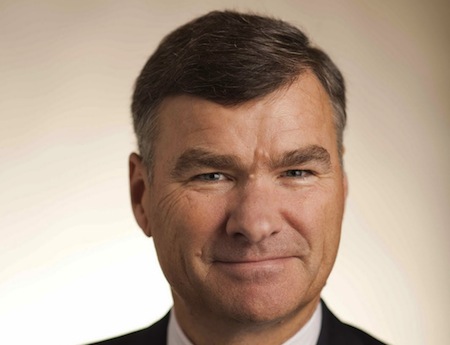DirecTv's White: Bigger Means Better Competitor

The smarter way to stay on top of broadcasting and cable industry. Sign up below
You are now subscribed
Your newsletter sign-up was successful
Mike White, president of DirecTV, says its merger with AT&T is all about competitive bundles, faster broadband and being more competitive with cable.
That is according to his testimony for hearings in the House and Senate Antitrust subcommittees June 24. White and AT&T Chairman Randall Stevenson were preparing to take turns pitching the deal as witnesses for both hearings.
White points out that cable ads point to his company's lack of an Internet offering and cable's speed advantages. And while DirecTV plays up other advantages of satellite in its now-famous marionette ads about the lack of wires, White was conceding the disadvantages and saying DirecTV must adapt--or in this case be adopted by a broadband player like AT&T.
He said consumers are increasingly demanding bundles (although at least one media research analyst, Craig Moffett of MoffettNathanson, suggested what consumers really want are discounts). "We must offer our own integrated bundles if we hope to meet this new consumer demand," he said.
White also said it was "enormously" important to be able to prove over-the-top video, as well as improve its linear video given all the services and extras cable operators can offer.
"Our cable rivals can offer innovative features and services such as remote digital video recorders and video on demand programming stored in the cloud," he said, adding, "Cable subscribers can watch thousands, perhaps even tens of thousands, of films and television programs whenever they want."
White was not done singing the praises of cable. "Because cable operators increasingly put their functionality in the cloud, they can improve their service much more quickly and easily," he said. "I understand, for example, that Comcast’s cloud-based platform has enabled it to make 1200 system updates in the last 12 months. We will need to do the same if we want to keep up."
The smarter way to stay on top of broadcasting and cable industry. Sign up below
DirecTV has been offering bundled service, including AT&T broadband, but White called them "synthetic: arrangements that have largely failed to create a competitive offering, first because sales and installation and customer support and billing are all tough, and second, because the bundles are more expensive since two companies are involved.
White sums up the what's-not-to-like value-addeds as more and better bundles, better video, lower content costs, more broadband and more innovation.
Contributing editor John Eggerton has been an editor and/or writer on media regulation, legislation and policy for over four decades, including covering the FCC, FTC, Congress, the major media trade associations, and the federal courts. In addition to Multichannel News and Broadcasting + Cable, his work has appeared in Radio World, TV Technology, TV Fax, This Week in Consumer Electronics, Variety and the Encyclopedia Britannica.

